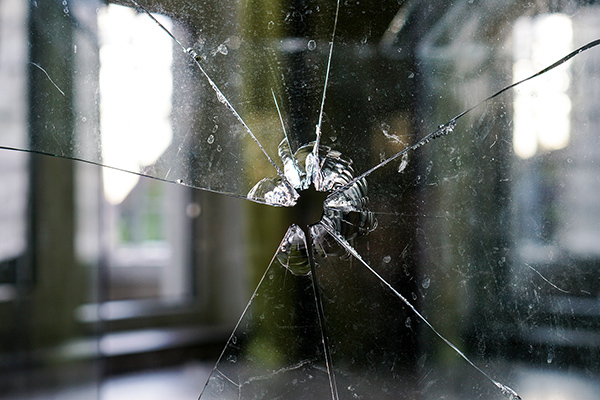The Guilford County Board of Commissioners is headed for a high-profile showdown on Thursday, June 6 with a vote that pits advocates of a new Cure Violence program in Greensboro against those who think the program is not the best way to address the increase of violent crime in the city.
The anti-violence initiative, which got its start in inner-city Chicago before expanding to other cities, uses ex-felons and others often with a criminal past to go into high-crime areas of cities and dissuade potential perpetrators from murder and other violent crimes.
The proposed plan calls for the City of Greensboro and Guilford County to split the roughly half-million dollars in startup costs for the first year of the program and get it operational in select high-crime areas in Greensboro. The proposal now on the table calls for Guilford County to use money from the county’s jail system’s Inmate Welfare Fund, which is raised largely from fees on collect phone calls made by inmates at the jail. Of course, for that to happen, at least five of the nine commissioners would have to approve the Cure Violence funding.
The item is on the county commissioners meeting agenda for a Thursday, June 6 vote. Ordinarily, that would be a good sign for advocates because most high-profile items don’t end up on the agenda unless there’s enough support to pass them. However, in this case, the item was included at the insistance of Commissioner Skip Alston – a strong advocate for Cure Violence but also a member of the Democratic minority that doesn’t get to make the calls.
Alston said that Chairman of the Board of Commissioners Alan Branson only included the item on the agenda this week “reluctantly” because he, Alston, insisted.
“I told him that, if he didn’t put it on there, I would bring it up under new business,” Alston said, adding that any commissioner can always include what he or she wants on the agenda.
Alston said he’s hopeful that all the Democrats and at least one Republican will vote for the county to fund Cure Violence.
“I hope they will take the politics out of it and look at saving lives,” Alston said.
He said that if the program saves just one life it would be worth it. He added that he knows this isn’t the be all and end all for the problem of violence but he said it would be a start.
“Right now we are doing nothing, and something is better than nothing,” he said.
The opponents of the program say they also want to reduce violence but add that the program causes liability issues, has a number of question marks and has not yet proved itself as an effective solution to the problem.


Should this pass muster with the Guilford County Board of Commissioners, I would hope for the best of successes with the program, however, other programs that have been started in high crime cities have not been successful. It appears to me that it will be 1) the fox guarding the henhouse; and 2) a huge liability for the county government. No amount of waivers will relieve the county of the liability of having one of the participants/mentors in this program murdered by a criminal who does not receive the program well. These mentors are bound to step on the toes of the drug activity in certain areas of town, and will place themselves at risk.
As a CV professional recently moving to this city, I would advocate that the area try. The areas we’ve had success have had far greater challenges than Greensboro.
Put more police on the street with the money you wish to use. Talk is obviously not the answer until the community starts to talk to each other, stick together and not be afraid to call yo report suspicious or known criminal behavior.
Council – let the police do their job without interference. Council- you want to save lives- stop being worried about being politically correct and let the police do their job! You will continue to lose more lives with your constant micro management of the police department. Greensboro has well trained officers who are willing and able to perform their jobs. Would feel better with the councils support. Council members go ride along with the police on a weekend night in the district were crime is high. Learn what it is like to be in their shoes. OR sit on your council seat complaining, acting confused and remain ignorant to what your police department is capable of doing.
Chief Scott-take charge of your department without council interference. You are doing the right to add more police presence in the high crime areas. You have a duty to protect and serve our citizens. I understand the pension and council, but lives are being senselessly lost.
Community- help stop the senseless killings of our community.